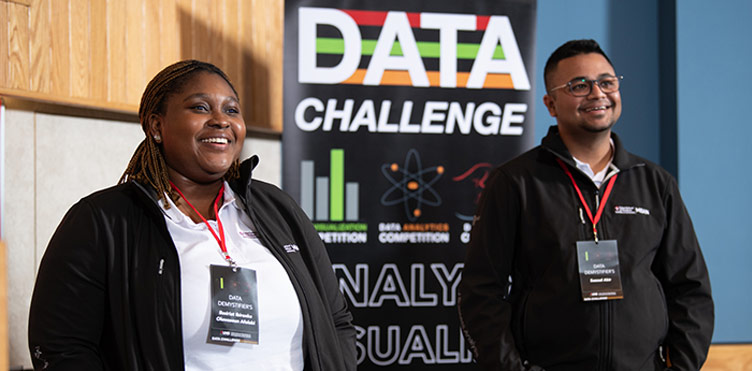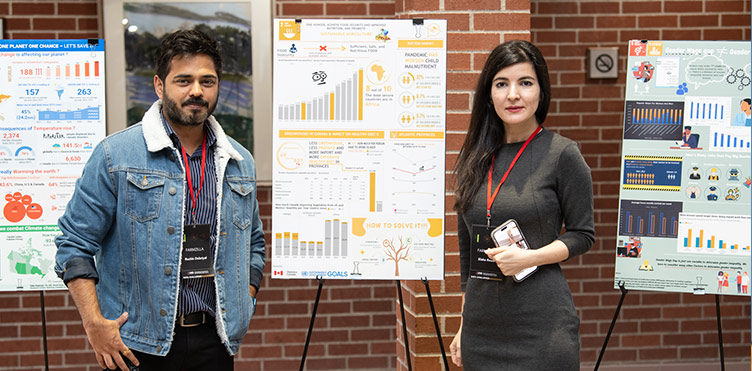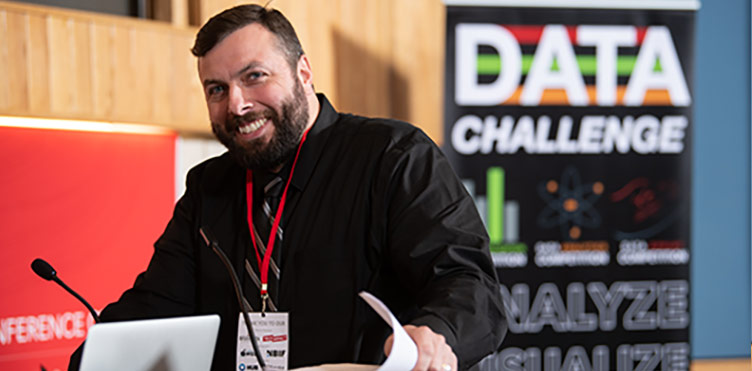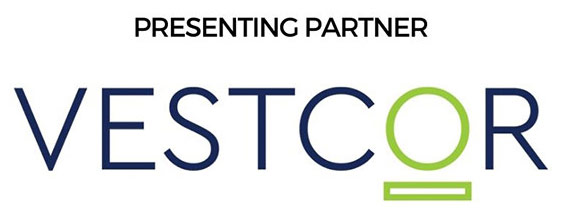UNB Data Challenge (Finance Edition)

Turn numbers into narratives
The annual UNB Data Challenge brought students from across Canada to demonstrate the power of open data. This year, we are bringing the same competition back with a twist!
The UNB Data Challenge (Finance Edition) is a reimagined data visualization competition where competitors will now be tasked with uncovering investment opportunities using data.
Students will tackle an investment management question using real financial data to uncover insights and tell compelling stories through visualization. The challenge builds hands-on skills in data analysis, communication, and decision-making that give students a competitive edge in finance careers.
Teams will compete for up to $1,000 in prize money! The UNB Data Challenge (Finance Edition) will be held in person at UNB Fredericton.
Event information
Eligibility

- The UNB Data Challenge (Finance Edition) is open to all students enrolled in a post-secondary institution in any discipline.
- Applicants can register either individually or in teams of up to four members.
- All team members must be either permanent or temporary residents of Canada. Awards can only be given to competitors who hold a Canadian bank account. International students at Canadian educational institutions are eligible.
- Each team must submit one Infographic Poster, which they must prepare themselves.
- Completion of application form (one form per team) with information of all members submitted by 12 p.m. AT on Nov. 14, 2025.
- At least ONE member must attend the Data Challenge in person for the entire event.
The UNB Data Challenge is a competitive event. A panel will review all applications and select the top teams to present at the UNB Data Challenge (Finance Edition) on Nov. 28, 2025.
Important dates

- Oct. 17, 2025 | "Kick Off Session," Zoom, 12-1 p.m. AT. Register!
- Oct. 30, 2025 | "Acing Data Viz with Ray Harris," Zoom, 12-1 p.m. AT Register!
- Nov. 14, 2025 | INFOGRAPHICS DUE 11:59 p.m. AT Apply!
- Nov. 21, 2025 | Top 10 teams announced to compete on Nov. 28
- Nov. 28, 2025 | Finalists present at Data Challenge, HIL 318 Event Space, Harriet Irving Library, 1-4 p.m. AT.
Event format and schedule
Screening - Infographic Round
All teams must submit their infographic by Nov. 14. A committee will review the applications and select the top 10 teams to compete at the Data Challenge.
Finals - Poster Session
The top 10 teams will be invited to present their infographic poster to the judges in person on Nov. 28. The judges will then select 1st, 2nd, and 3rd place winners!
Apply

Data Challenge Competitor Prospectus
Only one representative from each team needs to complete the application form.
The Investment Management Question
As the global economy transitions toward clean energy and advanced technology, critical minerals such as lithium, nickel and rare earth elements are becoming increasingly important.
Should Canada increase its investment and production in these resources?
Students can explore how such investments could affect the broader economy, climate goals, and different industries from mining and manufacturing to renewable energy and transportation.
UNB Data Challenge winners 2025
First place: Epsilon (Members - Mahin Iqbal Chowdhury, Akansha Vishnoi, and Fanelie Zedde)
Second place: Rockside Consulting Group (Members - Aditya Shah and Chirag Rohilla)
Third place: Data Transformers (Members - Mahsa Yadegari, Gagandeep Kaur, Rittwik Mukherjee, and Sundus Taj Hyder)
Thank you to our sponsor

Contact us
International Business & Entrepreneurship Centre
Faculty of Management
University of New Brunswick
9 Macaulay Lane, Tilley Hall
Email ibec@unb.ca
